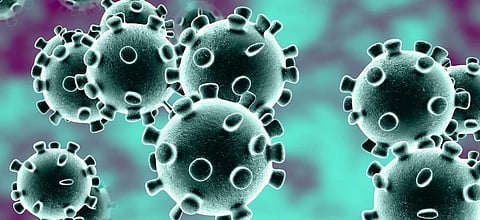

The novel coronavirus (2019-nCoV) continued its march across the world on January 23, 2020, with new cases popping up in Singapore and Hong Kong, even as three Chinese cities shut themselves owing to the outbreak.
An Indian nurse hailing from Kerala and working at a hospital in Saudi Arabia's Jeddah reportedly tested positive for the virus, Union Minister of State for External Affairs V Muraleedharan tweeted on January 23.
A 100 nurses were tested but the rest have been found not to be infected, Muraleedharan added. The government of Saudi Arabia is yet to confirm the news though.
Meanwhile, three more cities in China are going to be shut down from the midnight of January 24 because of the outbreak. They are Xiantao, Huanggang and Ezhou.
Wuhan, the hub of infection and home to 10 million people, closed on January 22. More than 450 cases have tested positive in the city. It is located in Hubei province. All modes of transport have been banned from operating in and out of the city.
Xiantao, a city of 1.7 million that is also located in Hubei, announced a shutdown on the evening of January 23. Buses and ferries have been suspended. Banquets, rallies and other gatherings have been disallowed. Playgrounds and entertainment hubs have been closed. Poultry trade too has been banned.
Huanggang, also in Hubei, is home to about 7.4 million people. The city’s public television announced that public bus and railway transport will be suspended.
The railway station of Ezhou, a city of a million people, will be closed.
January and February are also the months when millions travel within China to celebrate the Lunar New Year at their native places.
This year though, Beijing has cancelled major cultural events due to fears that cases of infection may increase as a result. Municipal authorities in the city have disallowed temple fairs starting from January 23 as a measure to prevent the virus from spreading, Chinese newspaper People’s Daily, said.
Experts have expressed doubts about the efficacy of China’s ‘lockdown’ strategy.
“To my knowledge, trying to contain a city of 11 million people is new to science. It has not been tried before as a public health measure. We cannot say whether it will or will not work, at this stage,” Gauden Galea, the World Health Organization’s country representative for China, said in an interview with the Associated Press on January 23, referring to the Wuhan lockdown.
Galea added that while such a radical measure “obviously has social and economic impacts that are considerable,” it also “demonstrates a very strong public health commitment and a willingness to take dramatic action.”
A total of 634 cases of the viral infection have now been confirmed in China, with 17 deaths. Hong Kong confirmed one case on January 23, while another suspected case is undergoing investigation.
Besides, two cases each have been reported in Thailand and Japan and one each in South Korea and the United States.
Singapore’s Ministry of Health confirmed its first case of the deadly virus on the evening of January 23. The patient is a 66-year-old man. He had returned from Guangzhou city in southern China. Another 53-year-old man is also suspected to have contracted the virus.
Three people suspected to be infected with the virus are being test in Scotland after having returned from Wuhan.
The source of the infection remains a bone of contention.
“A snake is the most probable animal reservoir for the 2019‐nCoV based on its RSCU bias resembling snakes compared to other animals. Taken together, our results suggest that homologous recombination within the spike glycoprotein may contribute to cross‐species transmission from snakes to humans,” the second group wrote in their scientific paper.